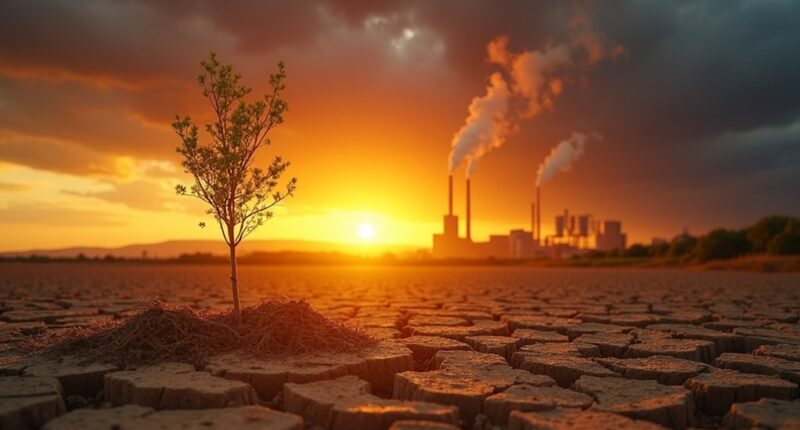The International Court of Justice recently highlighted that states could face legal trouble for neglecting climate action. Picture it like a global referee blowing the whistle on teams refusing to play by the rules. By establishing legally binding targets like limiting warming to 1.5°C, countries must step up their efforts or risk accountability. This shift in climate governance underscores that protecting the environment is now intertwined with human rights. Curious about what this means for our future? There’s more to uncover!
Quick Overview
- The ICJ ruling establishes that states have a legal duty to take climate action to prevent breaches of international law.
- Failure to meet climate obligations may lead to potential liability for states, emphasizing accountability in climate governance.
- The Paris Agreement and ICJ advisory opinion mandate ambitious mitigation measures to limit global warming to below 1.5°C.
- Vulnerable populations are disproportionately affected by climate change, necessitating states to protect human rights amid climate risks.
- International cooperation is crucial for states to fulfill their climate obligations and strengthen global accountability mechanisms.
Legal Obligations of States Under International Law
While one might think that climate action is just another item on the global agenda, the truth is that states are bound by a complex web of legal obligations under international law that makes it a top priority. The Paris Agreement, for instance, sets a legally binding target to keep global warming below 1.5°C—no pressure, right? States must submit Nationally Determined Contributions, detailing their climate strategies. Additionally, the recent advisory opinion from the ICJ confirms that the 1.5°C target is legally binding and reinforces the need for ambitious mitigation measures. And let’s not forget the duty to prevent transboundary harm, which means countries can’t just sit back while others pollute. These obligations align with global sustainability frameworks that guide countries toward achieving climate action as part of the broader UN Sustainable Development Goals. These obligations create a high-stakes game of climate accountability, where everyone’s watching for compliance. This includes the customary duty to prevent significant harm to the environment, which emphasizes collective responsibility among states.
Human Rights and Climate Accountability
Climate accountability is more than just a buzzword; it’s a pressing necessity in an era where human rights are increasingly at risk due to climate change.
Climate accountability is essential as human rights are threatened by the impacts of climate change.
The right to life, health, food, water, and housing are all endangered by shifting weather patterns and rising sea levels. Extreme events like heatwaves, floods, droughts, wildfires, and cyclones threaten these essential rights. Additionally, states have obligations to respect, protect, and fulfil human rights amid climate risks.
Vulnerable populations, often the least responsible for climate issues, bear the brunt.
Imagine facing the same risks as a refugee, but because of a drought instead of a war.
Social sustainability requires addressing inequities in how climate impacts are distributed across communities and generations.
To truly address these challenges, climate actions must honor human rights, ensuring that everyone, especially marginalized communities, isn’t left behind on this rocky road to sustainability.
Implications for National Policy and Global Governance
As nations grapple with the implications of the International Court of Justice’s recent opinion on climate action, it becomes clear that aligning national policies with international mandates is not just a legal obligation, but a moral imperative.
The ICJ’s ruling transforms climate action into a legal duty, compelling states to regulate emissions and protect vulnerable populations. This includes recognizing that clean, healthy, and sustainable environment is a precondition for enjoying human rights. Moreover, the ICJ emphasizes the need for international cooperation among states to fulfill their obligations.
With potential liability for failing to act, countries may find themselves in hot water—literally!
This newfound accountability also encourages global cooperation, as states are incentivized to strengthen their climate commitments. Businesses can contribute significantly by measuring contributions to specific sustainable development goals that address climate change.
In short, the clock is ticking, and the stakes have never been higher for effective climate governance.









